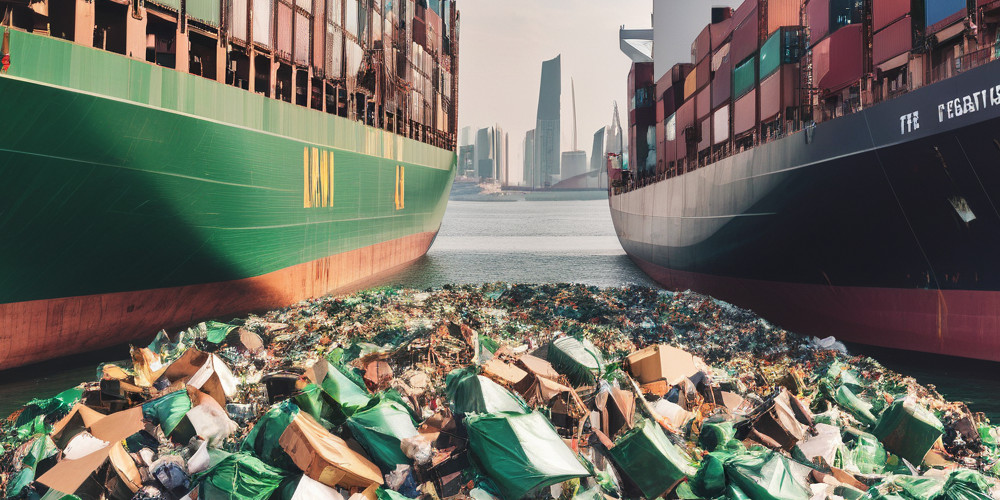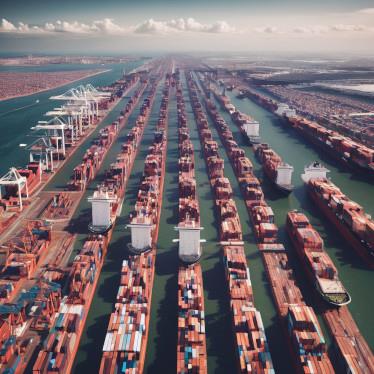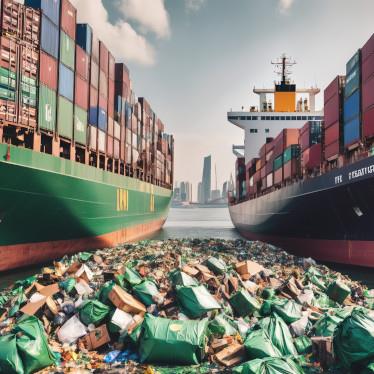
The Critical Role of Waste Management in the Maritime Sector
As the indispensable backbone of global trade, the maritime industry is increasingly under scrutiny for its environmental impacts. With the vast majority of the world's goods transported over the oceans, the need for sustainable practices has never been more urgent. At the center of this green imperative is the issue of waste management, an area where the maritime industry has both significant challenges and unique opportunities for positive change.
Environmental Imperative
Oceans are not just sea lanes; they are fragile ecosystems that support an incredible diversity of life. But the marine environment is threatened by pollution, much of it from ships. Waste, including plastics, hazardous substances and oil, can have devastating effects on marine species and habitats. And the waste problem is not limited to the oceans. Improper waste management on ships can lead to greenhouse gas emissions, contributing to global climate change.
Regulations and Compliance
Recognizing the urgent need for action, international and national bodies have introduced a number of regulations aimed at reducing waste from ships. The International Maritime Organization (IMO) sets standards for waste management on ships through initiatives such as MARPOL (International Convention for the Prevention of Pollution from Ships). Compliance with these regulations is not just a legal requirement; it is a moral imperative for maritime companies committed to sustainability.
Benefits of Effective Waste Management
Beyond compliance, effective waste management offers numerous benefits for transportation companies. First, it can significantly reduce operational costs. By minimizing waste generation and maximizing recycling, ships can reduce the volume of waste to be processed and disposed of and save money. Furthermore, companies that prioritize green practices are likely to gain credibility with consumers, partners and regulators, strengthen their brands and create new business opportunities.
Implementing Sustainable Practices
The path to better waste management involves several key steps. It starts with minimizing waste generation through efficient operations and good ship design. This can be complemented by comprehensive waste segregation on board, which facilitates recycling and the safe disposal of hazardous materials. Furthermore, investing in advanced waste processing technologies can further reduce the environmental footprint of shipping operations by converting waste into energy or other resources.
Collaboration and Innovation
No single organization can tackle the waste problem alone. Collaboration between shipping companies, governments, technology providers and civil society organizations is crucial. Through partnerships, the industry can share best practices, develop innovative waste management solutions and advocate for supportive policies and infrastructure. Furthermore, research and development into new materials, technologies and processes can open new avenues for waste reduction.
Call for Action
The maritime industry stands at a crossroads. By adopting sustainable waste management practices, it has the opportunity to significantly reduce its environmental impact and set an example for global efforts to protect our planet. But achieving this vision will require commitment, investment and cooperation from all stakeholders.
As we move towards a greener future, let us not forget that every action counts. From the smallest ship to the largest shipping conglomerate, everyone in the maritime sector has a role to play in managing waste responsibly. Together, we can ensure that the maritime sector contributes to the health of our oceans and the prosperity of future generations.


